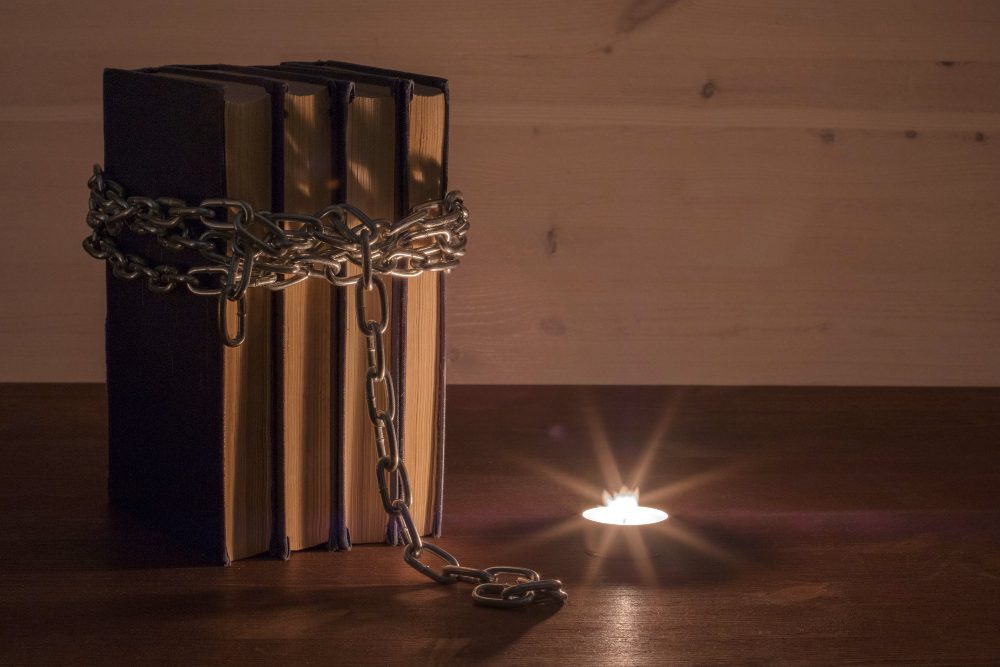Years ago, when I first visited the United States Holocaust Memorial Museum in Washington, D.C., I was stopped in my tracks by a quote at the entrance of the exhibit hall. It read: “Where they burn books, they will, in the end, burn human beings too.”
I have recalled that quote each time I’ve read a news story about the growing list of books being banned in schools, both across the US and abroad. This has happened regularly in 2022; I’ve seen estimates that the number of books being banned in the US alone has doubled in the past year.
It probably won’t surprise anyone to learn that the majority of banned titles are either authored by, or written about, members of the LGBTQ and Black communities. Many of the banned books include content on race, racism, and sex.
Recently, a school board in Tennessee banned Maus, the first graphic novel to win a Pulitzer Prize. Maus, written by Art Spiegelman, is an allegory portraying Jews as mice and Nazis as cats. It is a recounting of Spiegelman’s father’s imprisonment in a concentration camp at Auschwitz and has been taught in many social studies classes since the early 1990s.
The majority of book bans are driven by the extreme fringes of our ideological spectrum, both left and right. Though the ideologies differ, the reasoning for book bans is often the same: the book either doesn’t align to a preferred narrative, it presents the ugly side of history or human nature, it displays historic prejudice, or it may cause significant discomfort to read, often on purpose.
Personally, I remember reading books as a student that caused discomfort, or even anguish. Often, this discomfort directly led to meaningful questions that formed the basis of thoughtful discussion around the topic. While visceral emotional responses to books can be wrenching in the moment, these reactions provide the push out of our comfort zones that cause us to challenge our assumptions and gain new perspectives.
Regardless of the intention of these book bans, the result is a reduction in children’s understanding of different viewpoints, perspectives, identities, cultures, religions and historic frames. This reduction will have a compounding effect at a moment when, as adults, our empathy and willingness to listen and tolerate those who are different from us feels historically low.
While it’s reasonable to consider the age appropriateness of certain texts or topics, there are several reasons why everyone should be against the indiscriminate banning of books based on their subject matter:
- Book banning is a form of censorship, which undermines a core foundation of freedom of speech. Sometimes, to support a principle or value, one must lose a battle to win the war. Freedom of speech does not just protect speech we agree with; it’s important to recognize others have the same right to say things counter to our own viewpoints.
- Children shouldn’t always be shielded from difficult topics. This tendency stems from the rise of snowplow parenting over the past two decades, which prevents kids from developing the mental resilience they will need as adults. We should not make the blanket assumption that no children can handle certain topics.
- We don’t need to agree with everything we read, but it’s always helpful and important to understand different perspectives to develop our intellectual capacity. If you join a debate team, you must often advocate for the opposite position of your own belief, which can actually help you add shape and nuance to your viewpoint.
- Book banning isn’t even effective, as it almost always leads to an increase in the sales of the banned books. When parents make it clear that they don’t want their kids to read a book, those same kids often want to read it even more—and we live in an age where kids can get almost anything via their smartphones. Some bookstores are even creating banned book displays.
- When you create or use a new weapon, you must be ready for it to be used against you. The request to ban books by one side of the ideological spectrum is almost always met with an equal and opposite reaction by the other side. It’s a zero-sum game that weakens our collective empathy and intelligence.
- Finally, and most importantly, there is little, if any, evidence that banned books have a major behavioral influence on young readers. These books won’t suddenly cause someone to abandon their values or adopt any hateful or violent behavior depicted. Similarly, learning about a sensitive subject matter won’t necessarily make someone emulate that behavior.
As we have seen throughout history, book banning often begins the slide down a slippery slope of restrictions in both thought and freedom. History is always warning us of humanity’s prior mistakes, and one of the main reasons to study all forms of history is to learn from those mistakes, not to repeat them.
Quote of The Week
“Where they burn books, they will, in the end, burn human beings too.”
–Heinrich Heine









